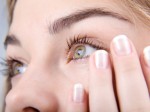 Orthorexia Nervosa (ON) is the latest eating habit under investigation and literally means “correct diet”.
Orthorexia Nervosa (ON) is the latest eating habit under investigation and literally means “correct diet”.
It was first described by Dr Steven Bratmen in 1997 as“an unhealthy fixation with healthy eating” 1 As the definition and diagnostic criteria of ON remains unclear it has yet to be officially placed on the DSM-5 scale of psychopathological categories, however it does have similarities to other eating disorders .
What is ON?
An obsession with food quality
Unlike those suffering from Anorexia Nervosa and Anorexia bulimia, Orthorexic’s do not focus on weight, body shape or the quantity of food eaten. Instead they exhibit an exaggerated concern for food quality restricting foods that they consider are insufficiently clean, healthy, wholesome or “pure” to consume.
Unhealthy foods such as those containing fat, preservative, man-made additives, animal products or other ingredients considered by the person to be “unhealthy”may be excluded. Unfortunately as more food groups become eliminated the intake of nutrients, in particular, energy and protein is unable to keep pace with the body ‘s requirements which can lead to malnutrition and failing mental health.
Self esteem issues
Self esteem becomes tied to the sanctity of the persons definition of a healthy food intake and the Orthorexic may blame themselves rather than their limited diet for feelings of hunger and cravings for “forbidden foods”.
Social Isolation
An Orthorexic can become highly critical of other people’s eating and fretful socially if others are eating ‘poison’.
Simply trying to decide on a suitable restaurant and available food when out with friends can lead to increased feelings of stress, isolation and anxiety. Ultimately an Orthorexic’s social life can deteriorate. 2
Failing health
Eventually nutrient deficiency can lead to hair loss, skin problems, hormonal imbalance, weight loss, fatigue, depression and other eating disorders.
What triggers Orthorexia?
Searching for a healthy lifestyle
Ironically for most sufferers this disorder can begin quite simply with a desire for better health.
In a place such as New Zealand where 68% of the adult population are now either overweight or obese many people are trying to eat more ‘healthily’.
However it is important to differentiate between healthy eating patterns people may follow for therapeutic reasons e.g. for the management of weight , cholesterol or diabetes and those who exhibit extreme limitation and obsession in food selection causing ON.
This extremism may be expressed in taking an increasing amount of time to prepare food, differentiating food as ‘good ‘or’bad’ and feeling ‘ashamed’ if eating ‘bad’ food, starving oneself rather than eating forbidden foods etc 1
Dieting aspects
Following a raw food, macrobiotic, vegan or fruitarian lifestyles could increase an individuals vulnerability to developing ON because these types of diets are already very restrictive. 1
Genetics
Some people inherit a predisposition to obsessive compulsive behaviour. They may exhibit anxiety, low self-esteem, have black/white thinking, ‘A’ type personalities seeking perfection, they may take things to extreme and may have a more addictive personality than others. Such a background can make these people more vulnerable to Orthorexia. 1
Athletes are at risk
Appropriate nutrition is important for optimal performance and so athletes can be particularly vulnerable to developing ON particularly if they already have a background of dieting behaviour. 3
Studies of the incidence of ON in athletes (compared to controls) have found that athletes are more likely to classify food as ‘good’ and ‘bad’ and may have obsessions with obtaining high quality food, concern with sugar and the colours of food. Athletes are more likely than controls to be aware of the fat, carbohydrate and calorie content of foods to the point of developing very strict eating rituals and exercise regimes. They may also have fears that certain food may lead to immediate body changes.
This only becomes a problem when it leads to restrictive eating practices that narrows food intake leading to ill-health. However coaches and sports managers need to know that athletes of both genders, especially those involved in professional sports may be at greater risk of developing ON than other people. 3
The ‘tipping point’
An Orthorexics daily obsession with obtaining healthy eating can reduce time available for other interests that formerly made up the fabric of their life such as time for hobbies, relationships, friends, etc. and so their life balance can become destabilised. This becomes the tipping point in the definition of the condition, when Orthorexic’s are unable to take part in everyday activities because of their obsession with food. ON appears to be at the cross roads between an eating disorder and obsessive compulsive spectrum of behaviour. 3
Cultural differences
Interestingly one of the difficulties that researchers have encountered when trying to establish a definition and diagnostic criteria for ON is that symptoms can vary across different countries, cultures and religions in terms of the expression of an eating disorder and also with the quality and availability of different foods . 2
Currently there is a lack of statistics regarding the incidence of ON in New Zealand however 1.7% of the New Zealand population (approximately 68,000 people) may suffer from eating disorders in their lifetime.4
Finding help
If you are unsure if you have a problem it may be helpful to ask yourself these two simple questions:
Do you ‘live to eat’ or ‘eat to live’?
- When you “live to eat” you maybe obsessed with food and food preparation and this can lead to extremes in food intake (under or over nutrition) and mental health problems.
- When you “eat to live” your healthy diet is the hub of your life giving you the energy you need to enjoy family, friends, close relationships, work, leisure activities, hobbies, exercise and learning new things. Your life has a better balance which not only nurtures your body but also your state of mind.
If you have concerns about your own eating or that of a friend or family member encourage them to see their doctor and also talk with Lea. A nutritional assessment to check for nutrient adequacy can be a good first step towards finding a pathway back to better health and wellbeing.
For more articles by Lea related to strict eating regimes refer to:
Don’t let energy deficiency ruin your health
Vegetarian’s face extra hurdles
Don’t let disordered eating ruin your performance
Is “Gluten free” a healthy food choice
8 Healthy tips when making a ‘real food’ choice
References
- Bratman,S, Knight,D. Health food junkies: Overcoming the obsession of healthful eating. New York.Broadway Books 2000..
- Varga,H. Thege, B. Dukay-Szabo,S. Tury,F. Van Furh,E. When healthy eating is not healthy: Orthorexia Nervosa and its measurement with ORTO-15 in Hungry. BMC Psychiatry 2014,14:59.
- Biswajit C. Exploring scientific legitimacy of Orthorexia Nervosa. A newly emerging eating disorder. Journal of Human Sport and Exercise. 01/2013, 1045-53.
- EDANZ The Eating Disorders Association of New Zealand. http://www.ed.org.nz/index.asp?pageID=2145862939





























































Leave a Reply